UK rapper Potter Payper’s storytelling is impossible to mimic
A life marked by deprivation and a spell in prison have shaped UK rapper Potter Payper into the creative powerhouse he is today

In September 2020, Potter Payper made his long-awaited return to the music scene with the acclaimed Training Day 3 mixtape. Marking the final entry in that series, it hit the charts at No. 3, as fans latched onto his authentic lyricism and catchy wordplay.
This achievement by the east London MC seems all the more remarkable when you learn that he had been released from prison just months before. Potter served half of a four-year sentence for his role in running a county lines drug-smuggling operation.
-

A stint behind bars helped shape Payper. (Photo: Francisco Gomez De Villaboa) -
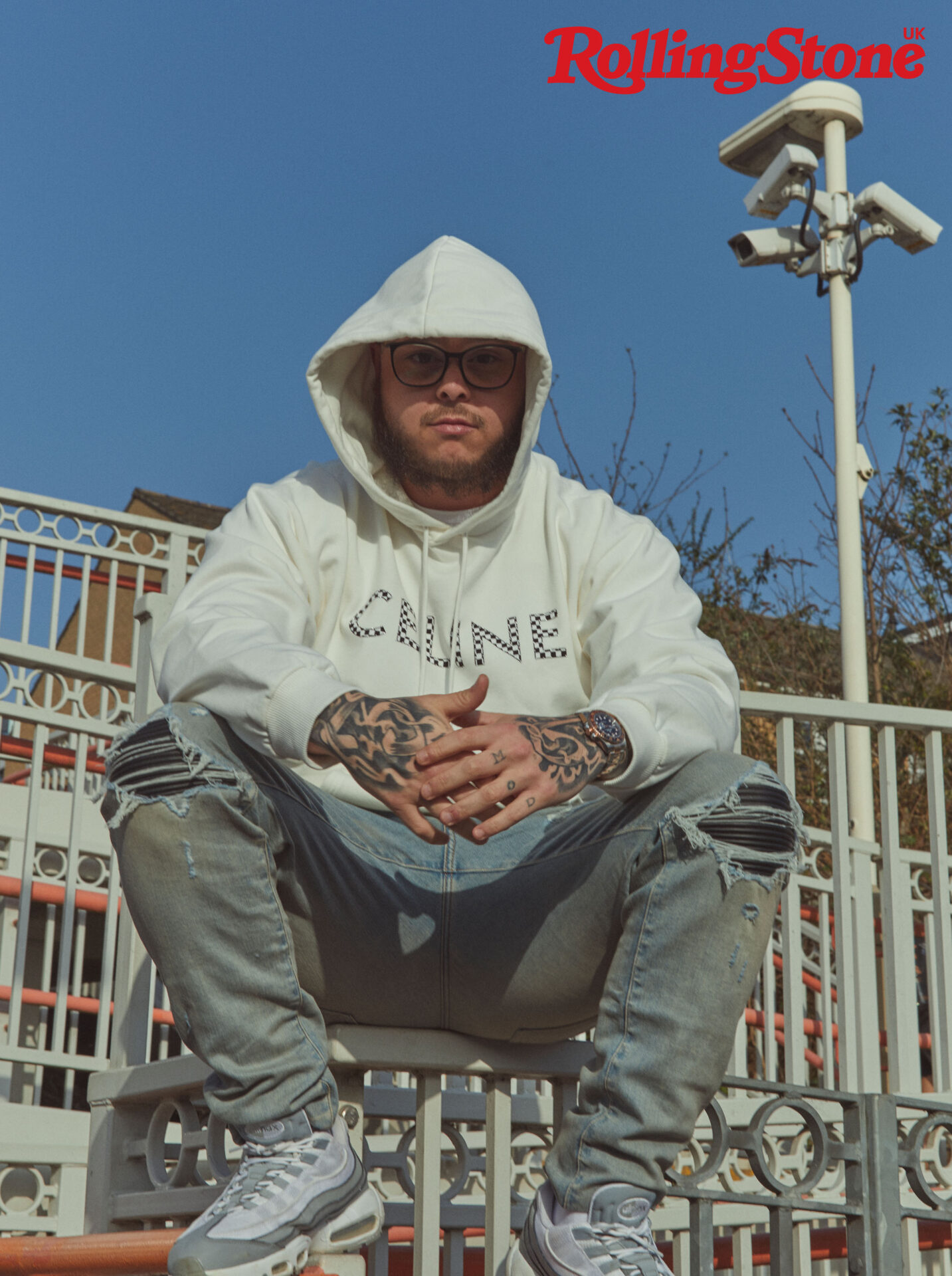
“You have to grow with the times.” (Photo: Francisco Gomez De Villaboa) -

“You can’t compare me to certain rappers if you know about my catalogue and the work that I’ve put in.” (Photo: Francisco Gomez De Villaboa) -
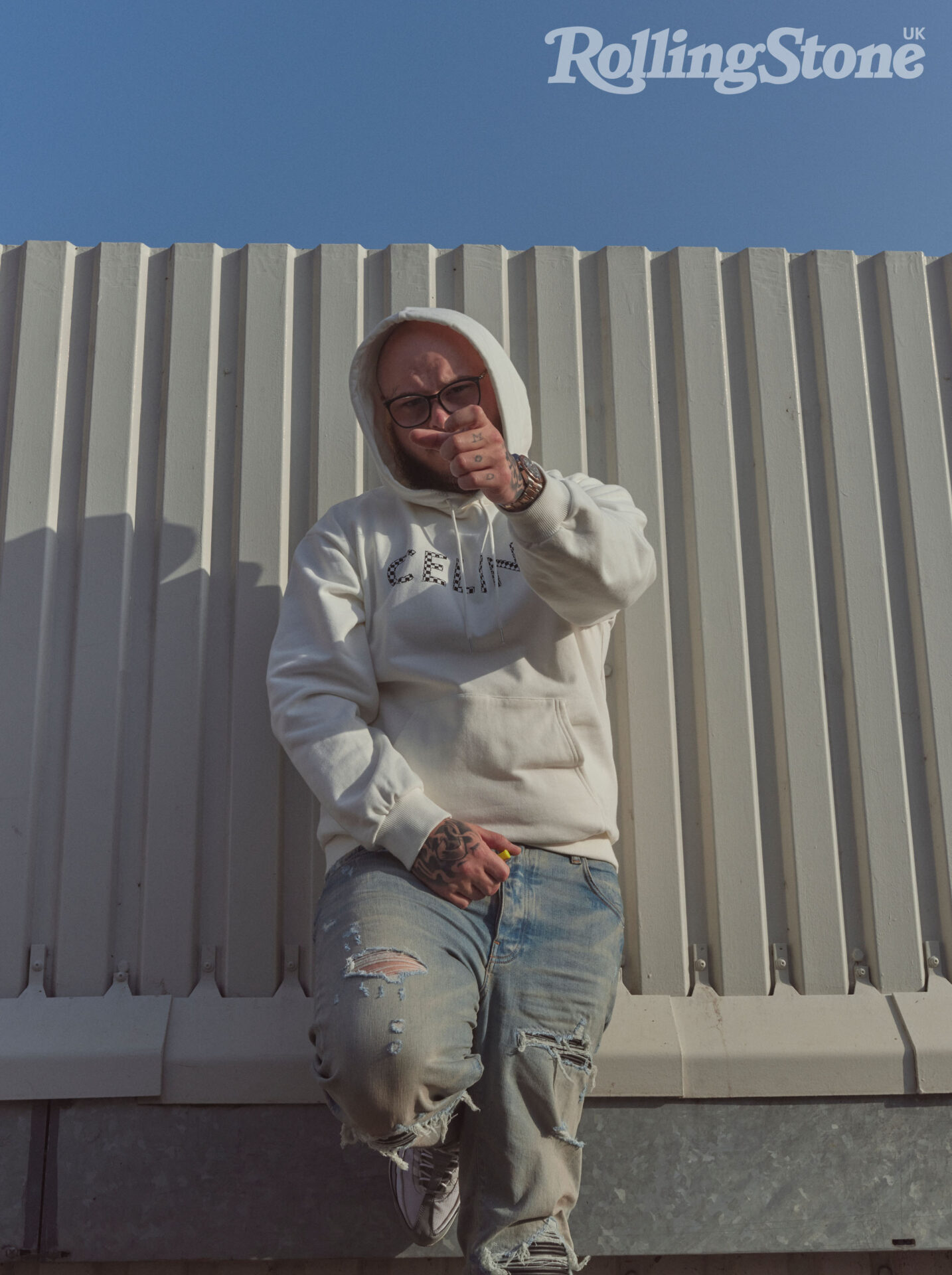
“People are listening to me for hope, inspiration.” (Photo: Francisco Gomez De Villaboa) -
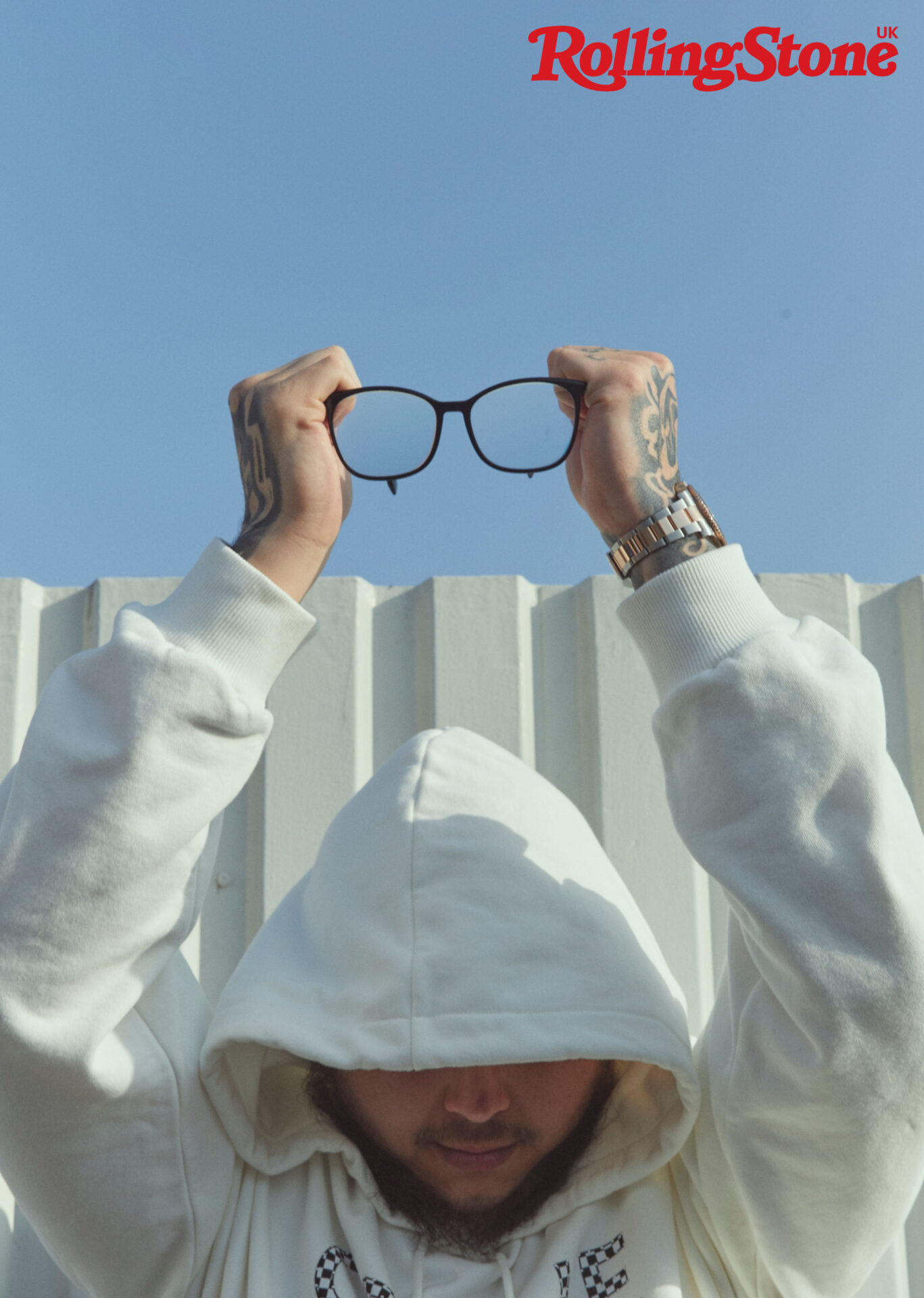
“Whatever the people love you for, love yourself for it.” (Photo: Francisco Gomez De Villaboa)
Further success came with his follow-up mixtape Thanks for Waiting, which dropped in October 2021. Potter’s first project featuring other artists, it debuted at No. 8 on the UK Official Album Chart — his second top 10 entry in just over a year.
At 31, his career continues to flourish. His recent single ‘Gangsteritus’ — capturing the emotional moment his late and beloved grandmother kissed him as he awaited sentencing — recently featured in the hit Netflix series Top Boy.
Although his time behind bars has undoubtedly influenced his work, the rapper’s storytelling of street politics and the detailed accounts of personal experiences in his music are impossible to mimic. It’s this ability to melodically paint vividly clear images with his words that sets Potter apart from his rap peers.
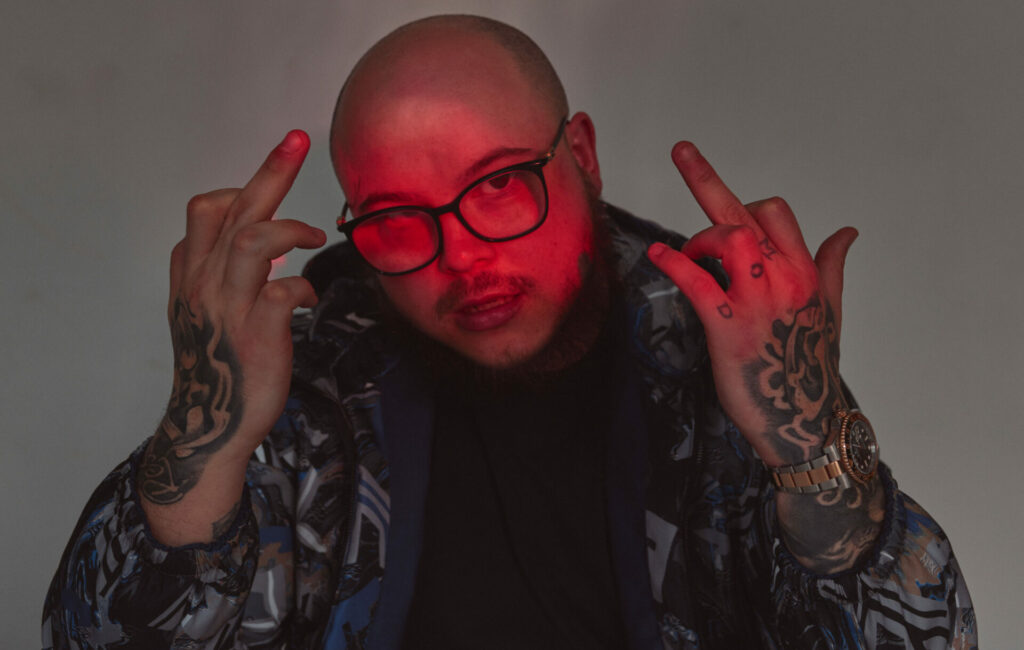
“A lot of people that rap in general terms don’t know how to make you feel it,” Potter states. “I found a way to be able to make you see it with my words because I see it myself.”
This gift in evoking emotion, he says, is rooted in a desire to platform his experience by “giving myself a voice”.
“Coming from where I’m from, I was a small little fat white boy and didn’t have a voice in the hood,” he explains.
“You have to grow with the times. As an artist I don’t want to be outdated. But it doesn’t mean I compromise my sound and me as a person – my music is deeper than that”
— Potter Payper
The sincere yet elegiac talent that comes through in all of his songs is evidently a product of his personality today. On arrival at his photoshoot in a studio in Walthamstow, east London, Potter’s contagious, energetic banter rubs off on us all. While he is being snapped, he playfully rubs his feet in circles on the ground, creating sounds that spark laughter from everyone in the room.
Acknowledging that the way in which fans consume music is changing rapidly, with many rappers focusing on TikTok to top the charts, Potter is ready to adapt — so long as the substance of his music can stay the same.
“You have to grow with the times,” he says. “As an artist I don’t want to be outdated. But it doesn’t mean I compromise my sound and me as a person – my music is deeper than that.”

Despite his youthful and playful spirit, he finds his poetic craft so vital to his career that he continues to use conventional methods when in creative mode. “I still write a lot of my stuff with pen and paper,” he says. “I have a lyric book and I still stick to that process because that’s how I’ve always written.”
Reflecting on his peers and the state of the rap industry, he adds: “You can’t compare me to certain rappers if you know about my catalogue and the work that I’ve put in. I signed to a label last year but for the past 12 years, I’ve been funding my career by myself.”
Despite this, he expresses gratitude to the tight-knit music industry that showed him love and support. “I built relationships with people before I went away,” he says. “I’m really cool with genuine people who, if it wasn’t for the music industry, would be doing something else which would destroy their lives and you’ve got to commend them for that.
“People are listening to me for hope, inspiration. People are listening to me for motivation”
— Potter Payper
Themes in Potter’s music often reach back into his past. “I’m just in a time machine in my music and I evoke those emotions, their feelings, their experiences and I use them to drive me and drive my music.”
His fans are also, he shares, “a constant reminder not to lose myself and stay humble”. “I started doing this for no money with the idea of making no money — but you grow. I’ve been doing this for more than 10 years now. You would be silly to think I have not changed as a person.”
Over time, Potter has come to terms with how much weight and influence artists from the hood have, leading him to be more conscious of the content of his material. “I’ve got more of a responsibility for the things that I put out in the public domain, you know what I’m saying.”
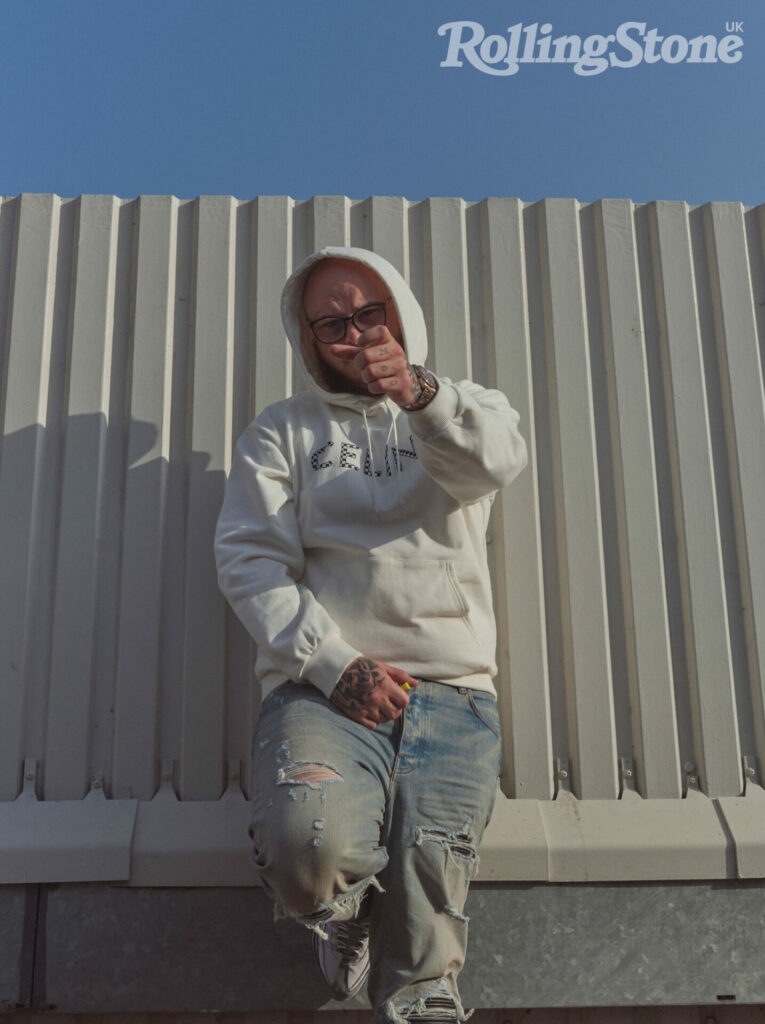
“People are listening to me for hope, inspiration. People are listening to me for motivation. People are listening to me to relate to someone that maintains that image, unlike your average artist, even if they start with it.”
However, he isn’t taking anything for granted just yet — he says growing up on a tough estate in Dagenham has enabled him to live in the moment.
“You can’t miss it if you never had it or [had] never seen it before. I didn’t know that there was anything more than that until I saw it and then on and on and on and your mind and horizon expand until you realise, ‘Wow, how did I live in that place of darkness?’”
“Whatever the people love you for, love yourself for it. Don’t just be trying to switch with the times and jump on every new trend. If you’ve been yourself, then stay who you are”
— Potter Payper
Yet his experience of poverty, deprivation and social exclusion has informed Potter how dysfunctional our current system is. He knows that the severe cracks in the welfare system and the failures of the criminal justice system to rehabilitate citizens leave young people growing up without hope.
“Once your liberty is taken, you lose yourself,” Potter confesses. “The first time I was taken away from my family and sent to prison in my youth, I don’t know what at that point made me think that when I come out, I can break the law again and again.”
“There was something that outweighed that and I felt hopelessness. Remember, we are in England. Everything should be provided for you by the state. How can a child feel hopeless? And I was a child back then. Remember, poverty breeds crime and, before you know it, you’ve alienated a whole group of society.”
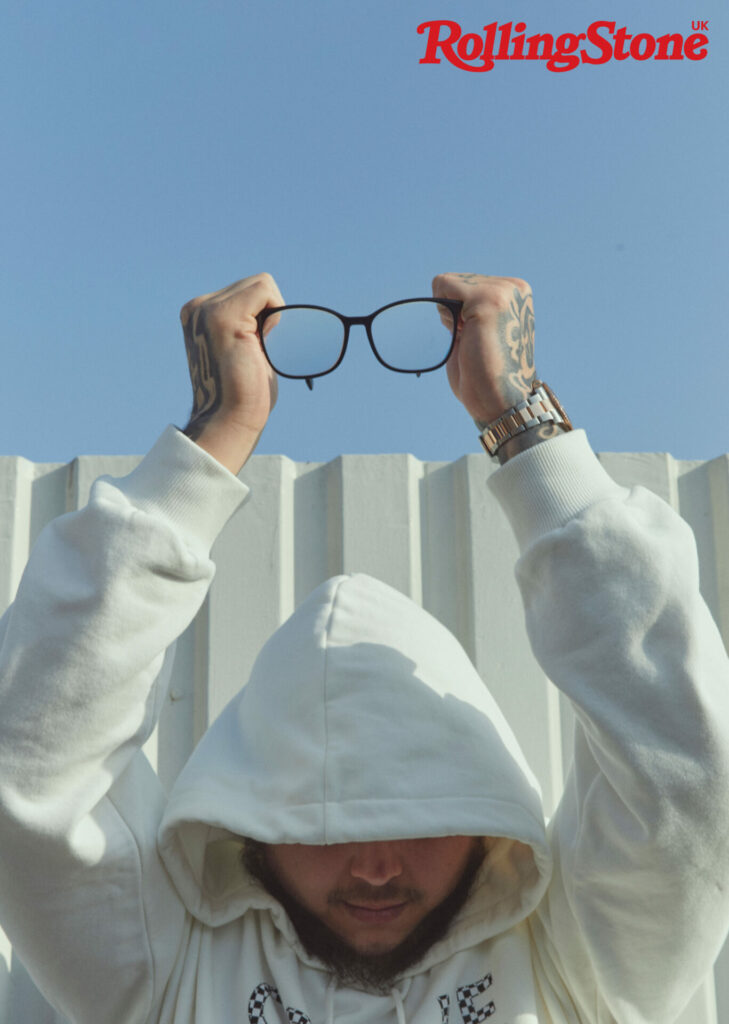
When Potter was growing up, he started to see the urban deterioration of his community in Barking. Now the place where he was raised has drastically changed. Gentrification has swept through working-class areas in a process that saw his mother forced to move.
“They knocked down the estate that I grew up on,” he reveals. “I grew up there and have memories there and people’s families lived there. The living conditions were inhumane and if they were to fix them and let them live at a decent standard, that could have worked. But they didn’t; they just moved my mum to another estate.”
There’s no doubt that a career as prosperous as his comes with its fair share of knowledge, wisdom and experience. Potter’s advice to aspiring artists is: “Whatever the people love you for, love yourself for it. Don’t just be trying to switch with the times and jump on every new trend,” he says. “If you’ve been yourself, then stay who you are.”
“I still write a lot of my stuff with pen and paper. I have a lyric book and I still stick to that process because that’s how I’ve always written”
— Potter Payper
You sense that this artist still has so much more to give. He exclusively tells Rolling Stone UK that his long-awaited debut album is finally due for release later this year.
“I’m making my first album and I would say I’m well on the way,” he says. “I’ve finished about 30 per cent of it — I’ve got, like, 15 to 16 songs completed.”
And it is music, he says, that has ultimately allowed him to find harmony.
“When I was growing up, I couldn’t look my nan in her eyes and see how she knew I was lying or doing the wrong thing. But just before she died, I could look her in her eyes and that’s how I knew I was on the correct path,” he says. “I have three sisters that were being looked after by my nan — but now I can look after them. As long as I continue doing this, that lets me be at peace.”
Taken from the June/July 2022 of Rolling Stone UK. Buy it here.
